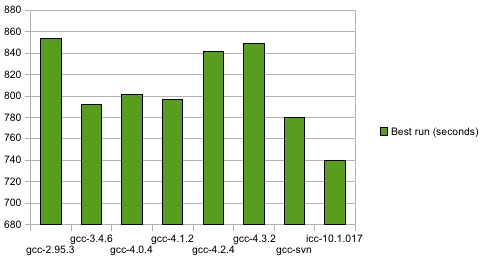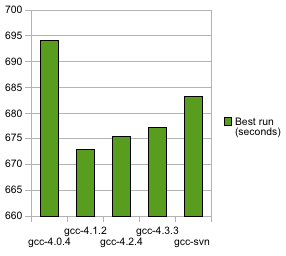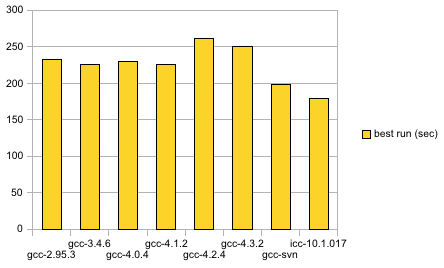I’ve been doing compiler stuff tonight:
- Thanks to Carl Eugen Hoyos as well as my compiler contact inside Intel for advising me on how to procure icc version 11.0.083 (vs. .081 previously) along with an unlimited, non-commercial compiler license. Looks like I won’t have to worry about the 31-day limit now (though there might still be a problem with the Mac OS X version). Further, the 32-bit compiler runs from the 64-bit kernel prompt (I am trying to move away from the 32-bit chroot setup and am meeting with some success). Both 32- and 64-bit versions are now in FATE.
- After a brief respite following the release of gcc 4.4.0, I have updated the gcc SVN snapshots and reinstated the configurations tracking the FFmpeg build status on experimental gcc 4.5 builds. I’m especially proud, though, that I managed to build one C compiler binary that runs under 64-bit Linux but can build both 32- and 64-bit binaries.
- A lot of people wonder about this, so I wanted to make it known that I have been briefed on how to use LLVM, the rising star of compiler technology. Thus far, I have not been able to create a build that compiles FFmpeg. I hear that they’re working on it.
New performance smackdowns to come, at least for those that can currently build FFmpeg (the current rev of gcc 4.5-SVN, rev 147090, isn’t doing so well– failing across platforms).





